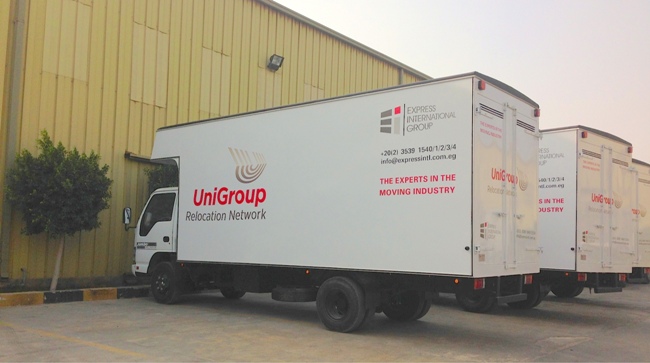UniGroup Relocation Network’s global managing director Paul Bernardt took time out to update The Mover with some important changes and benefits that its new rebrand will bring to its members and clients.

The network formerly operated as UniGroup Worldwide UTS before the name change.
The UniGroup UTS name was first created in 2002 as a strategic alliance between UTS International, the global network of moving companies, and UniGroup Worldwide (that originated from two of the USA’s oldest removals firms – Mayflower and United – both established in the 1920s). As a result of the merger, UniGroup Relocation Network members can now provide physical resources and customer services at nearly 1,200 locations across six continents.
Paul Bernardt explained that the rebranding has been a success with customers responding well to new logos and livery that portray the UniGroup Relocation Network as a reliable and friendly relocation entity. Paul explained that one of the reasons for the rebrand was the need for a more customer-friendly name and recognition that the success of the relocation trade is becoming ever more reliant on the Internet and other communication technology. “Nowadays, more and more companies tend to relocate their employees by giving the individual a lump sum allowance – whereas long-term relationships with companies would often exist in the past – the client now has the flexibility to shop around for a company to fit the budget they’ve been given. These new clients are most likely to approach a relocation company via the Internet on a one-off basis. This highlights the importance of effective and targeted online marketing campaigns of which a rebrand can help to kick start,” explained Paul.
Another good reason for the rebrand is to increase awareness and visibility of the group’s services to prospective younger clients. For instance, the old logos on vans and buildings never used to be accompanied by service descriptors, like ‘Relocation Network’. In the USA, the different divisions of UniGroup operated under a number of names so they were all brought under one umbrella.
Paul also mentioned the benefits of becoming a member of the UniGroup Relocation Network. Membership allows smaller companies to retain autonomy and management style, whilst obtaining access to business that may not usually come its way. Members also become part of a bigger network that can help with insurance, billing, report generation, netting policies, global marketing assistance and security of payments. “We need to add value to the network for our members,” said Paul. “One way we have achieved this is by streamlining and unifying our communication platforms. We’ve done this by connecting each of our members through RedSky. Smaller companies often need a common denominator and groups like ours can harvest growth for them.”
UniGroup Relocation Network already has approximately 150 members globally. We asked Paul about the tipping point between membership exclusivity and market saturation. “Membership numbers tend to fluctuate and individual companies make decisions first and foremost in their best interest, such as a company sale or merger. So we are always pushing to increase our numbers. If we don’t work on this constantly our membership will shrink. We also preserve a high business integrity which I think is a valuable commodity these days,” Paul concluded.
The strategic alliance between the US-based UniGroup Relocation and the UniGroup Relocation Network resources have combined: 50,000 employees, a fleet of over 9,000 trucks; 3,000 vans; over 4 million m3 of office and warehouse space, alongside its extensive international network.
Photo: The rebrand includes van livery with logos that include descriptors like 'Relocation Network'.
Click here to read the next Editor's pick